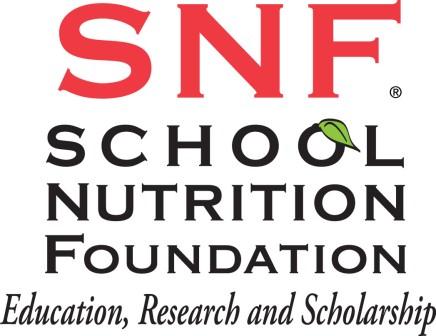 For more than 30 years, the School Nutrition Foundation has been raising funds to provide SNA members with the opportunity to achieve their higher education goals through a wide variety of scholarships. To date, SNF has awarded members over $2 million in scholarship funds. In our SNF Scholarship Series we will be aiming the spotlight at some of our scholarship winners and sharing their stories with you, including excerpts from their application essays and follow-up interviews.
For more than 30 years, the School Nutrition Foundation has been raising funds to provide SNA members with the opportunity to achieve their higher education goals through a wide variety of scholarships. To date, SNF has awarded members over $2 million in scholarship funds. In our SNF Scholarship Series we will be aiming the spotlight at some of our scholarship winners and sharing their stories with you, including excerpts from their application essays and follow-up interviews.
Desiree Karst is the Area Manager for the Boise School District in Boise, Idaho, and a 2014 Schwan’s Scholarship recipient. We recently sat down to chat with Desiree about her school, her scholarship, and her plans for the future.
According to her application essay, Desiree found her way to a career in nutrition at junior college. “I was going through the motions … until I took a basic nutrition class. Nutrition was interesting, stimulating, and I found myself becoming passionate to become skilled at the subject, as well as share learned knowledge.” Given that she already had experience working in food service—and found it enjoyable—Karst eventually found herself at Central Washington University, where she completed the Dietetic Program, but not the required Dietetic Internship.
Since moving to Boise, Karst has also completed her Masters of Business Administration (MBA), but has always held on to that intention to complete her DI. “I was recently encouraged to apply to the DI by my supervisor, Peggy Bodnar,” Karst wrote in her application. “Our team feels strongly that there is a need in school food service to have multiple experts, i.e. Registered Dietitians (R.D.) … I am committed fully to obtaining the necessary credentials to improve the health of our community specifically our youth.”
In our follow-up interview with Desiree, she shared her satisfaction that she is finally able to pursue this long-held goal to earn her R.D. license. “The dietetic intern is required to take the exam to become a registered dietitian,” explained Karst. “You have to get those hours out in the field, which include clinical, community, and food service management areas. For our district, those credentials are an assurance that we have a strong team with a nutrition background.” Nutrition knowledge is important, says Karst, as is the ability to convey that knowledge—the education component of nutrition is crucial. Desiree pointed to a number of programs that help the Boise school nutrition staff reach the most students. “We feel kids need to start their day with a balanced breakfast; some of our schools use the cafeteria, and others use breakfast-in-the-classroom which really reaches a lot of students.” A grant made the Fresh Fruits and Vegetables program possible for Karst’s students; other programs include Afterschool Snacks and Fuel Up to Play 60.
Karst sees expertise as a way to ensure that nutrition messaging really resonates with the student body. “The kids get to ask us questions, and we can talk about where food comes from, using local items. It’s a positive experience in every classroom we visit.” Marketing materials also provide an opportunity to educate kids and parents; for example, the nutrition staff distributes calendars that contain information on whole grains, lean proteins, fresh fruits and vegetables, and dairy.
Getting involved with SNA will open up all kinds of opportunities for school food service professionals, says Karst. “I was very aware of the resources that School Nutrition Foundation has to offer because of my involvement in SNA. I’m so thankful to the Foundation for this assistance!”
You can help SNA members achieve their educational goals by supporting the School Nutrition Foundation; click here to make a donation.
